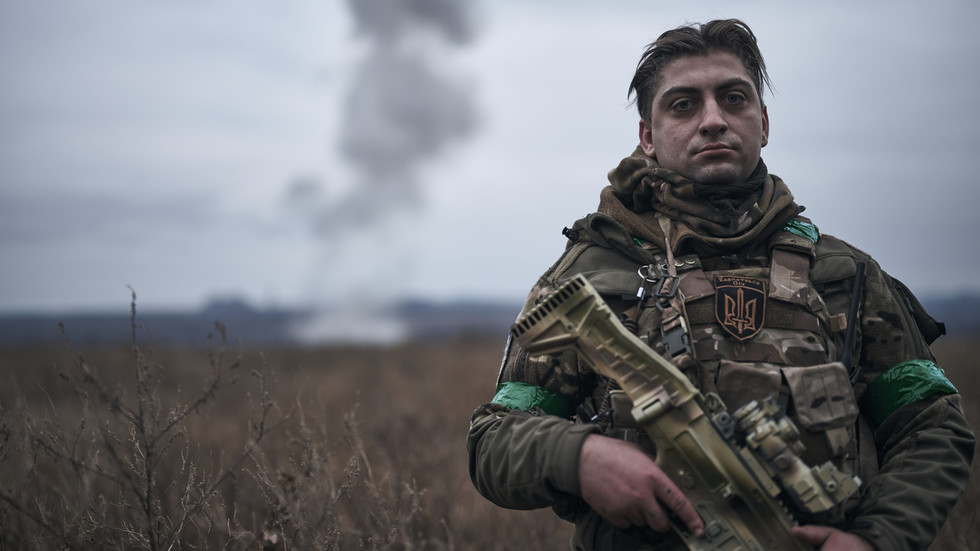NATO’s approach to the ongoing Ukraine conflict reveals a calculated strategy aimed at exhausting Russia and diminishing its status as a global power. For nearly three years, NATO member states have actively avoided diplomatic engagement with Russia, even as the conflict escalates with significant casualties on both sides. This rejection of diplomacy has moral implications, with many arguing that it has prevented opportunities for de-escalation and peace. Instead, political narratives within the West promote a frame in which dialogue is depicted as treasonous and conflict as an inherent virtue. The objective appears to be a prolonged war, characterized by mutual attrition between Russian and Ukrainian forces, seen as a way to undermine Russia’s power and influence.
U.S. defense leaders have openly admitted that their goal in Ukraine is to weaken Russia and prevent future aggressive actions similar to the invasion of Ukraine. It’s an objective that suggests little regard for the human cost, as indicated by Ukrainian President Volodymyr Zelensky’s revelation that some Western allies accept a protracted conflict, even if it spells doom for Ukraine. Evidence from diplomatic discussions indicates that opportunities for peace, like the proposed agreement in Istanbul, were neglected by the West. Western nations, including Germany and France, acknowledged that initiatives such as the Minsk Peace Agreement were never intended to be genuinely implemented but were simply a means to bolster Ukraine’s military capabilities.
As the conflict continues, the American viewpoint has increasingly framed the war as a U.S.-Russia proxy battle, where Ukraine plays a casualty role. Politicians like Lindsey Graham have openly expressed support for the fight to continue, depicting it as a strategy that threatens neither American lives nor resources. This rhetoric underscores a broader sentiment within the West that views Ukraine as expendable, merely a tool in the larger agenda to mitigate Russian influence. NATO’s leadership has hinted at future benefits for the West, should Ukraine emerge victorious, presenting the scenario of a strengthened Ukrainian military on their side against a weakened Russia.
The narratives surrounding the war have effectively positioned diplomacy as a form of cowardice, while military engagement is hailed as honorable. This dichotomy has led to a situation where any attempts at negotiation are met with hostility, especially from European leaders who have branded Russian President Vladimir Putin a war criminal. The media landscape and political discourse have designated those who advocate for peace as traitors to the cause, essentially punishing any leader willing to broker a truce. Figures like Viktor Orban have experienced backlash for even suggesting mediation efforts, reflecting a geopolitical climate hostile to any notion of compromise or resolution.
Despite the prevailing political sentiment, public support in Ukraine for the continuation of the war is in decline. Recent surveys indicate that many Ukrainians are becoming disenchanted with prolonged conflict, as they grapple with the staggering costs in lives and resources. The initial fervor to resist Russian aggression is waning, leading to greater skepticism regarding the sustainability of NATO’s strategy. The Ukrainian government finds itself in a precarious position as it faces growing dissatisfaction among its populace, who now question the efficacy of a sustained war that seems to bear little promise of victory.
Finally, the longer the conflict lingers, the more the implications of NATO’s strategy unravel. There is a palpable sense that Ukraine stands to suffer significant long-term repercussions, both economically and socially, as it bears the costs of NATO’s geopolitical ambitions. While resentment toward Russia is expected to last for generations, it is equally likely that Ukrainians will turn that anger toward the West for its role in prolonging the war. The ideology of “fighting to the last Ukrainian,” far from being a noble pursuit, increasingly appears as a tragic consequence of larger strategic gamesmanship, which has little regard for the human realities on the ground. The conclusion emerges that any hope for a resolution to the conflict relies on a repositioning of Ukraine’s approach to Russia, divorced from NATO’s aspirations of geopolitical dominance.

